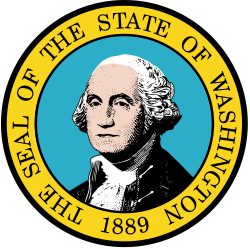| | |||||||||||||||||
November 4, 1958 | |||||||||||||||||
| |||||||||||||||||
 County results Jackson: 50–60% 60–70% 70–80% 80–90% | |||||||||||||||||
| |||||||||||||||||
| Elections in Washington (state) |
|---|
 |
The 1958 United States Senate election in Washington was held on November 4, 1958. Incumbent Democrat Henry M. Jackson won a second term in office over Republican William Bantz.

